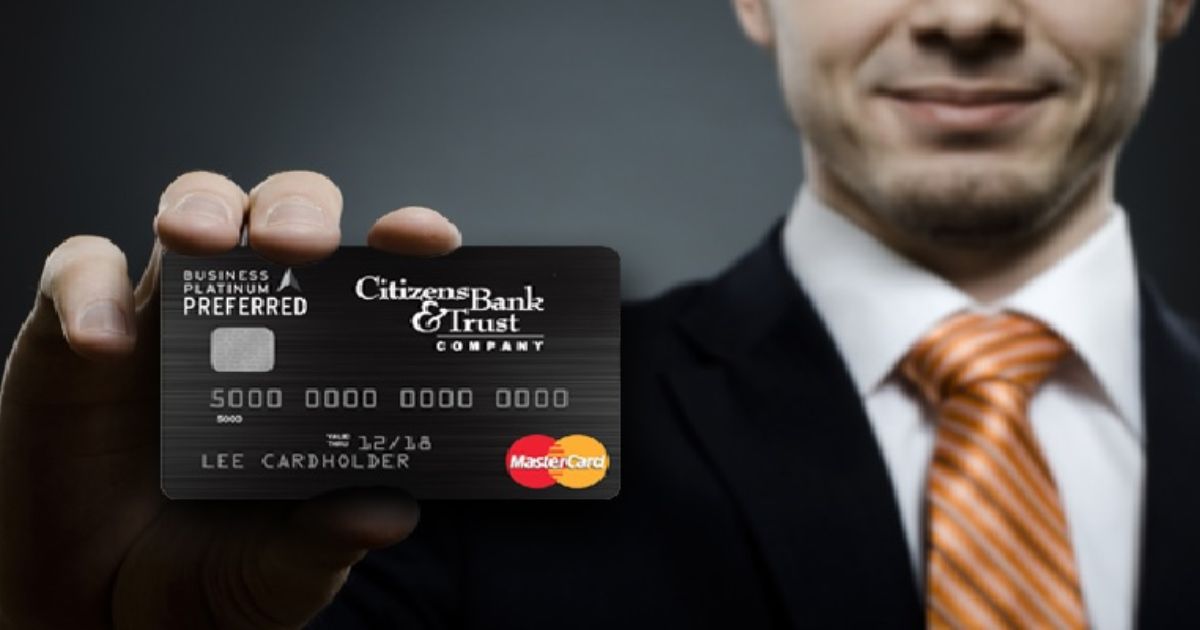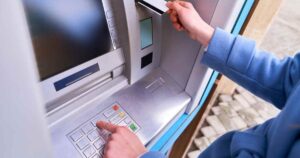Are you wondering if it is permissible to use a business credit card for personal expenses? This article explores the legal implications, pros and cons, and impact on credit scores of using a business credit card for personal use. Additionally, it provides tips for responsible usage and alternative options to consider. By effectively separating business and personal finances, you can maintain financial stability and ensure compliance with regulations. Discover how to navigate this common dilemma in the realm of personal and business finance.
Key Takeaways
- Using a business credit card for personal expenses can potentially violate credit card issuer’s terms and conditions and lead to legal consequences.
- It is important to establish clear guidelines and boundaries to separate personal and business expenses when using a business credit card.
- Using a business credit card for personal expenses can have a negative impact on credit scores and may result in negative marks on credit reports.
- Responsible usage of a business credit card includes practicing responsible credit card usage, making timely payments, and implementing an effective expense tracking method to ensure clear separation between personal and business expenses.
Legal Implications of Using a Business Credit Card for Personal Expenses
Using a business credit card for personal expenses can have potential legal implications that need to be carefully considered. While it may seem convenient to use a business credit card for personal use, there are both pros and cons to this practice. On the positive side, using a business credit card for personal expenses can help simplify expense tracking and provide access to rewards and perks offered by the credit card issuer. However, there are also drawbacks to consider. Mixing personal and business expenses can make it difficult to accurately track and report business expenses for tax and accounting purposes. Additionally, using a business credit card for personal expenses could potentially violate the terms and conditions set by the credit card issuer. To responsibly use a business credit card for personal expenses, it is important to establish clear guidelines and boundaries, keep detailed records, and consult with legal and accounting professionals for guidance.
Pros and Cons of Using a Business Credit Card for Personal Use
Using a business credit card for personal use can have both pros and cons. On the positive side, it can provide convenience and flexibility in managing personal expenses. However, it can also blur the line between personal and business finances, potentially leading to complications and challenges in tracking and reconciling expenses.
Benefits and Drawbacks
One important aspect to consider when using a business credit card for personal use is weighing the benefits and drawbacks associated with this practice. From a legal standpoint, it is crucial to understand the potential consequences of using a business credit card for personal expenses. While it may seem convenient to use a business credit card for personal purchases, it can lead to legal issues and tax implications. Using a business credit card for personal expenses blurs the line between personal and business finances, which can create complications during audits or in the event of legal disputes. Additionally, commingling personal and business expenses may make it difficult to track and manage both types of transactions effectively. As we delve further into this topic, we will explore the differences between personal and business expenses and the importance of keeping them separate.
Personal Vs. Business Expenses
When distinguishing between personal and business expenses, it is essential to understand the clear delineation between these two categories. While there may be some overlap, it is crucial to manage personal expenses separately from business spending, especially when using a business credit card. Here are four key considerations to keep in mind when managing personal expenses with a business credit card:
- Understand your card’s terms and conditions: Familiarize yourself with the card’s policies regarding personal expenses and any potential consequences for using it for non-business purposes.
- Keep personal and business expenses separate: Track and categorize your expenses diligently to ensure accurate bookkeeping and to avoid any confusion or potential issues during tax season.
- Set spending limits: Establish a budget for personal expenses and stick to it, ensuring that you do not exceed the predetermined limit set for non-business spending.
- Communicate with your accountant or financial advisor: Seek professional guidance to ensure compliance with tax regulations and to receive personalized advice on managing personal expenses alongside your business spending.
Impact on Credit Scores When Using a Business Credit Card for Personal Expenses
The usage of a business credit card for personal expenses can have an impact on an individual’s credit scores. While it may be tempting to use a business credit card for personal purchases, it is important to understand the potential consequences. When personal expenses are charged to a business credit card, it can affect the individual’s credit utilization ratio, which is a key factor in determining credit scores. Additionally, if the business credit card is not paid on time or if the individual exceeds the credit limit, it can lead to negative marks on their credit report. Moreover, there may be legal consequences for using a business credit card for personal expenses, as it can be considered as misuse or misappropriation of funds. It is crucial to consult with a financial advisor or follow the company’s policy regarding the usage of a business credit card to avoid any adverse effects on credit scores and legal issues.
| Potential Consequences |
|---|
| Impact on credit utilization ratio |
| Negative marks on credit report |
| Legal consequences for misuse of funds |
Tips for Responsibly Using a Business Credit Card for Personal Use
When using a business credit card for personal expenses, it is important to practice responsible credit card usage. Managing personal expenses on a business credit card can help streamline your personal expense management and provide certain benefits, but it is crucial to handle it responsibly. Here are some tips to ensure responsible usage:
- Set clear boundaries: Determine a specific spending limit for personal expenses on your business credit card to avoid overspending.
- Separate personal and business expenses: Keep track of your personal expenses separately from your business expenses to avoid confusion and ensure accurate financial reporting.
- Pay your bill on time: Make timely payments on your credit card to maintain a good credit score and avoid penalties.
- Regularly review your statements: Monitor your credit card statements to identify any unauthorized charges or errors.
Alternatives to Using a Business Credit Card for Personal Expenses
When it comes to personal expenses, there are alternatives to using a business credit card. One option is to seek reimbursement for personal expenses from the company, especially if it is a common practice within the organization. Another alternative is to use a personal credit card for personal purchases, ensuring a clear separation between personal and business expenses. Additionally, implementing an effective expense tracking method can help keep personal expenses in check and facilitate accurate reimbursement or tax reporting.
Personal Expense Reimbursement
Discussing personal expense reimbursement, it is important to understand the guidelines and policies set by the company in order to properly utilize a business credit card for personal use. Here are some key factors to consider when seeking personal expense reimbursement:
- **Company Policies**: Familiarize yourself with the company’s reimbursement policies to ensure compliance with their guidelines.
- **Proper Documentation**: Keep track of all personal expenses made using the business credit card, including receipts and detailed descriptions of the expenses.
- **Separate Personal and Business Expenses**: Clearly distinguish personal expenses from business-related expenses to avoid confusion and potential tax implications.
- **Tax Implications**: Consult with a tax professional to understand the potential tax consequences of using a business credit card for personal expenses.
Personal Credit Card Options
Personal credit card options vary widely, with some offering rewards programs, low interest rates, and additional features such as purchase protection and travel insurance. When it comes to personal credit card benefits, there are several factors to consider. Rewards programs are a popular feature, allowing cardholders to earn points or cash back on their purchases. These rewards can be redeemed for travel, merchandise, or statement credits. Low interest rates are also important, as they can save cardholders money on interest charges. Additionally, many personal credit cards offer purchase protection, which can reimburse cardholders for damaged or stolen items, and travel insurance, which provides coverage for trip cancellations, medical emergencies, and lost baggage. It is essential to compare different personal credit card options to find the one that best suits your needs and offers the most advantageous rewards.
Expense Tracking Methods
Expense tracking methods are essential for individuals and businesses alike to monitor and manage their spending habits effectively. Whether you’re tracking personal expenses for budgeting purposes or managing business expenses for reimbursement, having a system in place can help you stay organized and make informed financial decisions. Here are four popular expense tracking methods:
- Manual tracking: This method involves recording expenses manually in a notebook or spreadsheet. It requires discipline and attention to detail but allows for customization and control.
- Mobile apps: There are various expense tracking apps available that automate the process by allowing you to scan receipts, categorize expenses, and generate reports. They offer convenience and real-time tracking.
- Online expense trackers: These web-based tools sync with your bank accounts and credit cards, automatically categorizing expenses and providing detailed reports. They offer efficiency and accuracy.
- Expense management software: Often used by businesses, these tools provide advanced features like approval workflows, integration with accounting systems, and policy enforcement. They streamline expense management and provide better control.
How to Separate Business and Personal Finances Effectively
Effectively separating business and personal finances is crucial for maintaining financial organization and ensuring accurate reporting and analysis. It is essential to establish clear boundaries between personal and business expenses to avoid confusion and potential legal issues. One of the first steps in separating finances is to open separate bank accounts for personal and business use. This allows for easier tracking and monitoring of expenses related to each entity. Additionally, it is advisable to use separate credit cards for personal and business transactions. This not only simplifies record-keeping but also helps in managing expenses and identifying tax-deductible business expenses. By separating finances and managing expenses meticulously, individuals can maintain a clear financial picture, make informed financial decisions, and ensure compliance with tax regulations.
FAQ’s
Can I Use a Business Credit Card for Personal Use if I’m the Sole Proprietor of My Business?
Using a business credit card for personal expenses as a sole proprietor is generally allowed, but it is important to note that it can complicate accounting and tax reporting. Consider using personal credit cards for personal expenses to maintain clear separation.
Will Using a Business Credit Card for Personal Expenses Affect My Ability to Get a Personal Credit Card in the Future?
Using a business credit card for personal expenses can potentially impact your ability to obtain a personal credit card in the future. It may affect your credit score and also complicate the separation of personal and business expenses for tax purposes.
Are There Any Tax Implications for Using a Business Credit Card for Personal Expenses?
Using a business credit card for personal expenses may have tax implications and financial consequences. It is important to consult with a tax professional to understand the potential impact on your personal and business finances.
Can I Earn Rewards or Cash Back for Personal Expenses if I Use a Business Credit Card?
Yes, it is possible to earn rewards or cash back for personal expenses if you use a business credit card. However, it is important to understand the distinctions between personal and business credit cards before making any decisions.
What Steps Can I Take to Ensure I Am Effectively Separating My Business and Personal Finances When Using a Business Credit Card for Personal Use?
To ensure effective separation of business and personal finances when using a business credit card for personal use, it is important to follow certain steps. These steps include keeping detailed records, setting spending limits, and regularly reviewing statements. Additionally, it is crucial to manage personal expenses on a business credit card without impacting one’s credit score.
Conclusion
In conclusion, while using a business credit card for personal expenses may seem convenient, it is important to consider the legal implications and potential impact on credit scores. It is advisable to separate business and personal finances effectively to maintain financial stability and credibility. Exploring alternative options for personal expenses and following responsible usage tips can help individuals make informed decisions and avoid negative consequences. Finding the right balance between personal and business finances is crucial for long-term success.









